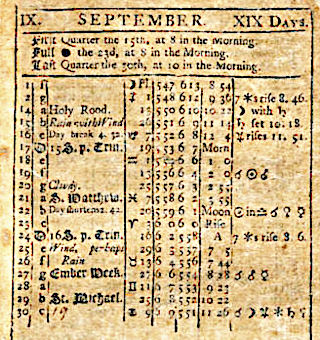In September 1752, a unique event occurred in the calendar system that we use today. Up until this point, the Julian calendar had been in use for centuries, but it was gradually becoming out of sync with the solar year. To rectify this, the British Empire decided to adopt the Gregorian calendar, which was already being used by most of Europe.
As a result of this transition, the month of September 1752 was a peculiar one. In order to align the calendar with the astronomical year, 11 days were omitted from the month. This meant that September 2nd was followed by September 14th, effectively skipping over those 11 days.
Calendar 1752 September Story
The Impact on People’s Lives
The sudden disappearance of those 11 days in September 1752 had various implications for people’s lives. Many workers were unhappy about losing almost two weeks of pay, as their wages were often calculated on a daily basis. Additionally, some people believed that the skipped days had some mystical significance, leading to superstitions and fears about the future.
Despite the initial confusion and resistance to the change, the adoption of the Gregorian calendar ultimately proved to be a much-needed reform. It brought about a more accurate way of measuring time and aligning the calendar with the seasons, ensuring that future generations would not have to deal with the discrepancies of the Julian calendar.
